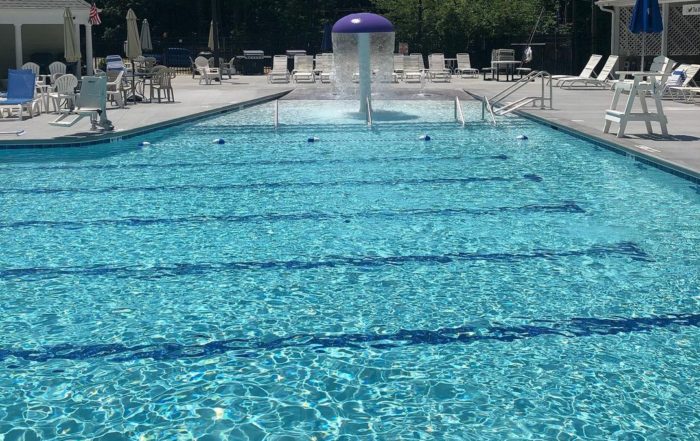ACID WASHING

ACID WASHING
Aqua Operators does not believe in acid washing plastered swimming pools except as a last resort to try to enhance the former beauty of the pool’s surface. We do not actively seek this business and will perform it for our customers only after they have been fully informed and are aware of the possible deleterious effects it may have on the pool’s cement surface. The decision to use acid procedures to remove stains and mineral buildup from a pool’s surface should be very carefully considered and is the responsibility of the Pool Owner. Under most circumstances staining or mineral buildup takes many months or years to accumulate.
While acid treatments are recognized as a common procedure for removal, there are several problems that may occur. Acid washing the plaster of swimming pools eliminates stains by removing some of the cement surface. The process of applying acid to plaster surfaces can have a very injurious effect on the plaster and can cause problems which are even more undesirable and unsightly than before. Some of the problems may become visible immediately after or as long as 1 year later following the washing of the plaster surface using an acid to water mix of any ratio. To what degree this occurs depends on the concentration of acid, the temperature of the stain being removed and the quality and condition of the plaster itself. In addition to the points previously addressed, other possible adverse effects are:
- The surface may etch, become rough or expose the aggregate in the plaster mix.
- Random areas of chipping and breaking away of a thin veneer layer of plaster may become evident.
- Some areas may take on a yellow or tan appearance which cannot be removed even by excessive removal of surface plaster.
- Other stains may appear at a later date because of the residual acid left in lines or equipment and main drain following the acid application.
- Please Note: In some cases cracking, thinning or delamination of the tile and plaster could be a preexisting condition and is beyond the control of the acid wash applicator and is difficult to detect when the pool is full of water. Consideration should be given to the experience and recommendation of the applicator and if you have any doubts, seek a second opinion and/or additional information.
PRESSURE WASHING/CHLORINE TREATMENTS
This process is considered when the pool has been left untreated or unfiltered for an extended period of time and algae has developed beyond the control of using hand fed chemicals. The pressure wash and light use of a chlorinated product will not be as harsh to the surface. Mineral stains most likely will not be removed with this process. The algae infestation can be quickly removed and any spores left behind killed instantly. Note: If the water has been left untreated for an extended period of time it will become very aggressive. This condition may have damaged the plaster beyond our attempts to revitalize. Aqua Operators is not responsible for a pool that may need to be replastered if these circumstances are uncovered. Some Black algae spores may require additional treatment after the pool is initially refilled.
An evenly colored, smooth texture after an acid procedure or a chlorine wash is a totally unrealistic expectation. The stains most likely took a long period of time to develop, and could be embedded deeply into the plaster material. At best the consumer can expect the pool’s appearance to look “brighter” than before, with some stains remaining. Sanding will aid in the restoration of the pool’s surface texture.

